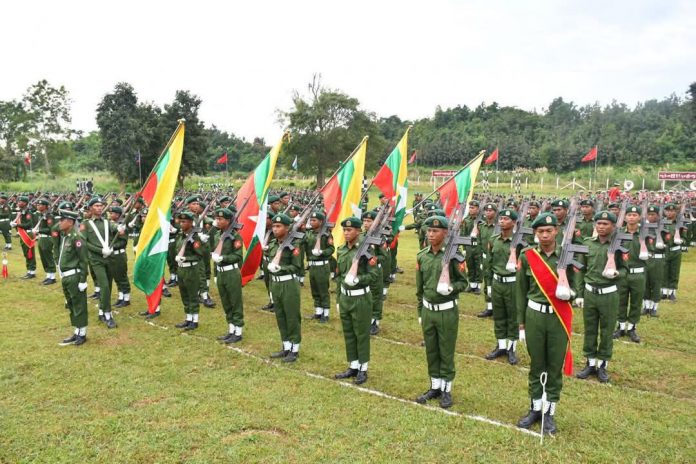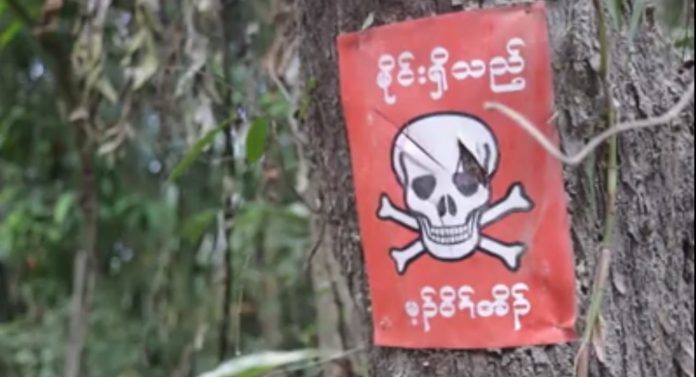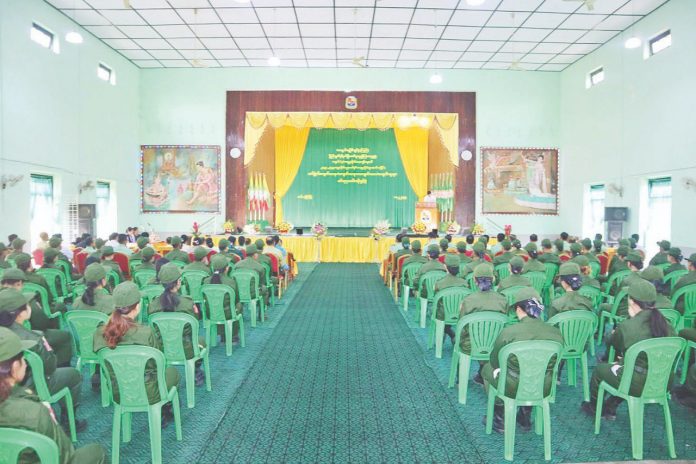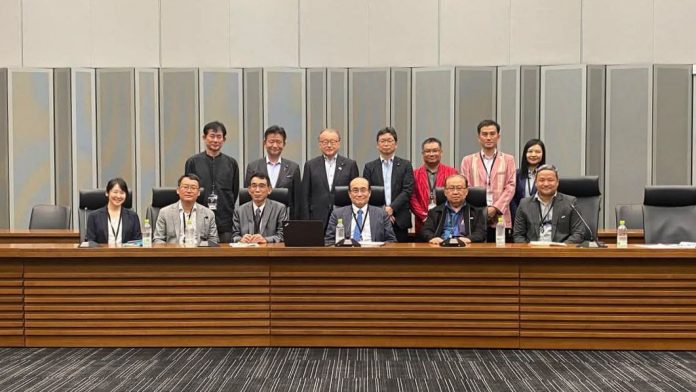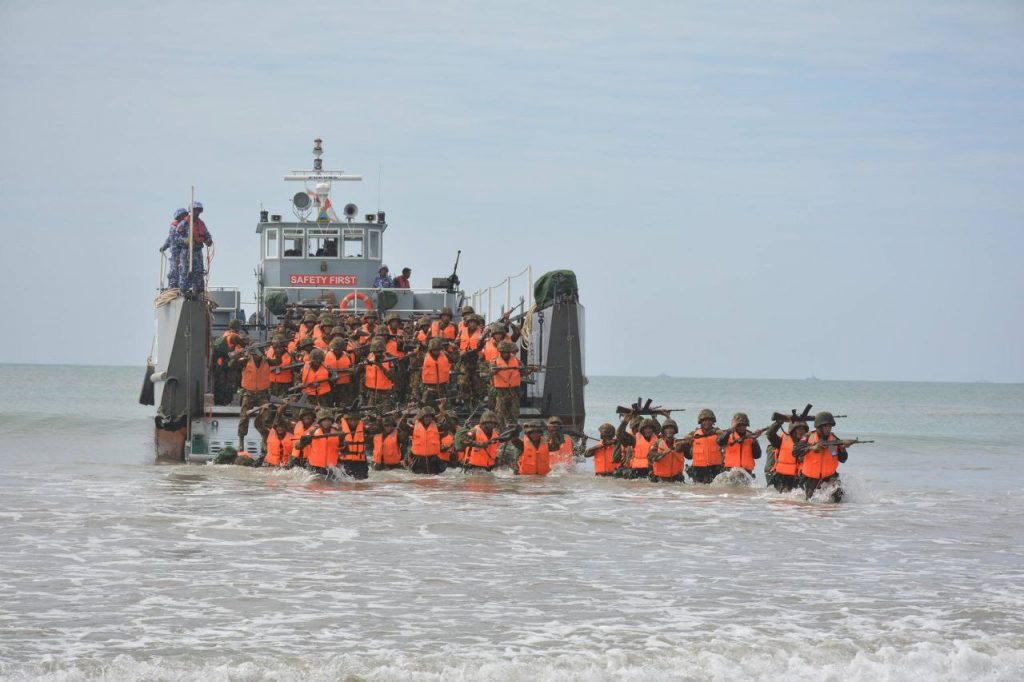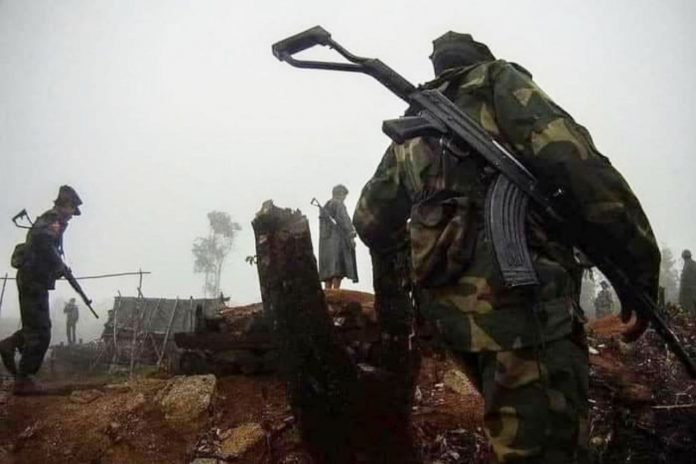New military conscription law guidelines unclear on wages
Business owners in Burma are concerned over new requirements in the military conscription law that requires them to continue paying wages to their employees who’ve been conscripted into the military. The regime issued stricter guidelines regarding conscription on Jan. 23. The conscription law was enacted on Feb. 10, 2024. It stipulates that men aged 18 to 35 who are conscripted must serve at least two years.
“[The law] is essentially a licence to exploit young people as forced labour on the frontlines,” Aung Myo Min, the National Unity Government (NUG) Minister of Human Rights, told DVB. He accused the military of using conscripts essentially as cannon fodder. The NUG Ministry of Human Rights stated that 23,799 people have been conscripted into the military, including 80 women and 28 children, since last April when the first intake began.
The new conscription law guidelines stipulate that when an employee of a company enters military service, their wages must be paid in accordance with the “ministerial orders and directives.” After completing military service, the employee should be reinstated to their position or an equivalent role. The exact amount to be paid or the duration for which wages must be provided were not specified. Read more.
Karen State fighting intensifies along Asia Highway
Fighting between the regime’s Aung Zeya column and resistance forces led by the Karen National Liberation Army (KNLA) have escalated along the Kawkareik-Myawaddy stretch of the Asia Highway. The Aung Zeya column launched its counter offensive to regain control of the road into the vital Burma-Thai border town of Myawaddy last April. Myawaddy is located 80 miles (128 km) east of the Karen State capital Hpa-An.
“[The military] is increasing its forces. We’re not advancing in an offensive, but holding back their advances,” a source on the frontline told DVB on the condition of anonymity. The regime has used artillery, air- and drone strikes against the resistance in Karen State. Myawaddy was returned to regime control after it was seized for 12 days by KNLA-led forces on April 23.
Artillery battalions under the Military Operations Command (MOC) 12 and the Light Infantry Battalion (LIB) 97 have reportedly fired heavy weapons in Kawkareik Township. The Burma Air Force has carried out airstrikes on nearby villages, located 21 miles (33 km) west of Myawaddy. An aid worker helping Internally Displaced Persons (IDPs) accused the regime of indiscriminate shelling.
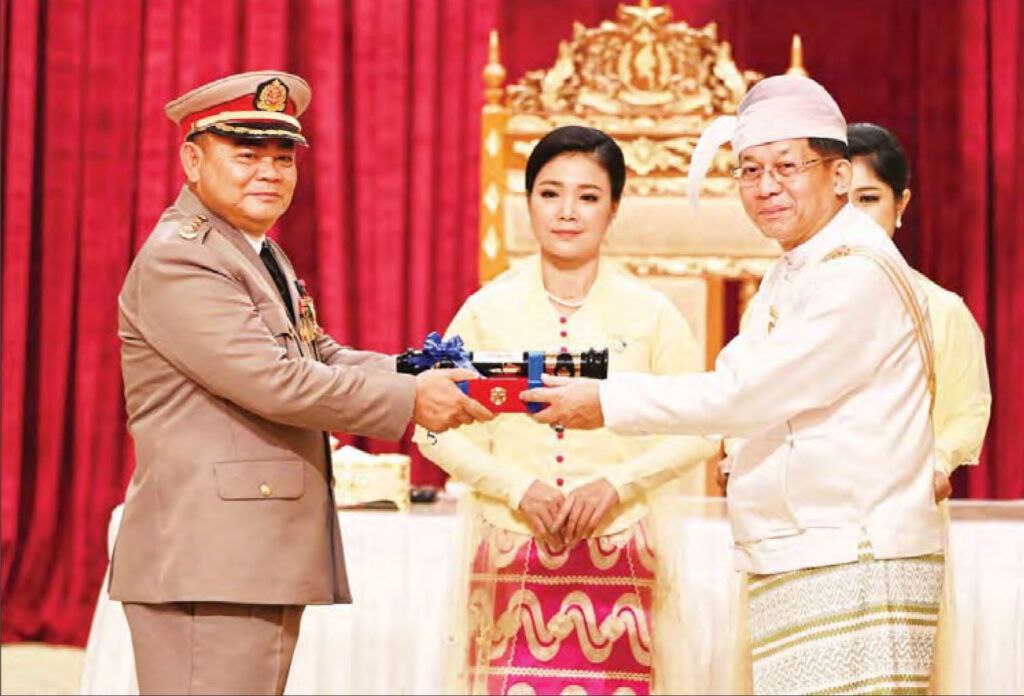
Border Guard Force responds to Thailand
Prosecutors from Thailand’s Department of Special Investigation (DSI) Human Trafficking Crime Bureau have requested arrest warrants for the leaders of the Karen Border Guard Force (BGF): Saw Chit Thu, Saw Mote Thone and Saw Tin Win. The three are accused of operating cyber scams in Myawaddy Township of Karen State along the Burma-Thai border across from Mae Sot, Tak Province.
“Thai authorities see me as guilty. What I want to say to those officials in Thailand is that I’ve been at the Thailand-Myanmar border for over 30 years. I’ve helped Thailand many times before. If they want to arrest me, I want to know under which laws they intend to do so,” Saw Chit Thu, the BGF leader, told DVB.
Thailand’s Deputy Prime Minister and Defence Minister Phumtham Wechayachai stated on Wednesday that Saw Chit Thu will be arrested if he enters the country. Thai media reported that the DSI received evidence from an Indian national who was rescued after being trafficked and forced to work at a cyber scam center in Myawaddy. Prosecutors have advised the DSI to gather additional evidence.
News by Region
AYEYARWADY—Kyonpyaw Township residents told DVB that reinforcements have been sent to the frontline near Arakan State on Thursday. Fighting between the Arakan Army (AA) and the military is escalating in Ngathaingchaung town, located 57 miles (97 km) north of the Ayeyarwady Region capital Pathein.
“The artillery base from the town fired artillery shells. We saw military paramotors flying over the town,” said a Ngathaingchaung resident on the condition of anonymity. Sources close to the military in Kyonpyaw claimed that new military training graduates are stationed inside the LIB 36 along with paramotor pilots.
SAGAING—Residents of Salingyi, Chaung-U and Monywa townships told DVB that at least nine civilians were killed and 22 others were injured by airstrikes carried out by the Burma Air Force Feb. 12-13. Salingyi and Chaung-U are located along the Chindwin River 16-26 miles (9-41 km) south of the Sagaing Region capital Monywa.
“An aircraft dropped bombs along the river in Salingyi early this morning,” a resident told DVB on the condition of anonymity. A member of an aid group in Chaung-U reported airstrikes on three villages in two townships on Feb. 12. Civilian casualties and fatalities have forced thousands of residents to flee their homes in the three townships.
SHAN—Residents of Tachilek Township told DVB that the price per liter of octane fuel rose from 30 to 80 THB ($1-2.3 USD) and petrol stations have only been open from 9-11 am since Tuesday. Thailand stopped power and fuel exports to Tachilek, as well as Karen State’s Shwe Kokko and Payathonzu, on Feb. 5. Tachileik is next to Mae Sai, Chiang Rai Province.
“Fuel prices have skyrocketed and we can’t buy as much as we need,” a Tachilek resident told DVB. In Myawaddy, residents reported that the price per liter of fuel rose from 6,000 to 15,000 MMK ($1-3 USD). Drivers queued at the Thai border to be able to purchase fuel in Mae Sot, Tak Province at 30 THB ($1 USD) per liter on Monday.
(Exchange rate: $1 USD = 4,500 MMK)



